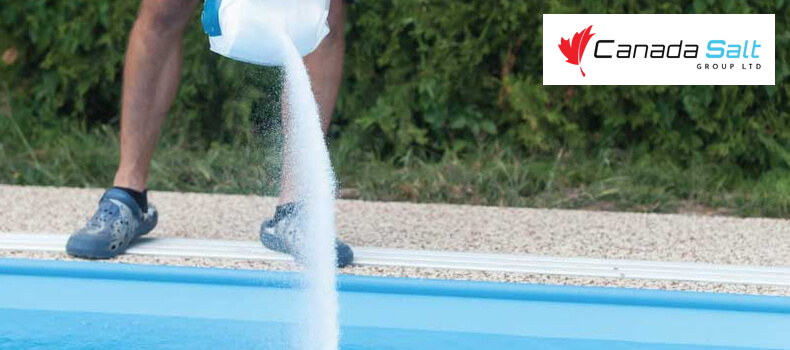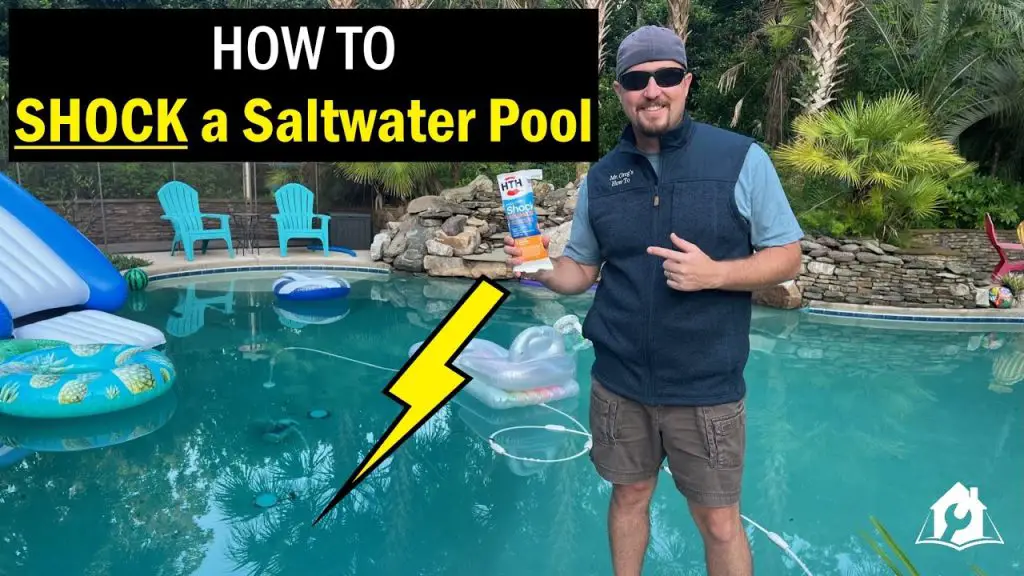Keeping your saltwater pool clean and safe for swimming requires regular maintenance, including the occasional shock treatment. Shocking your pool is essential to eliminate bacteria, algae, and other contaminants that can build up over time. But how often should you shock your saltwater pool to maintain its clarity and hygiene? Let’s dive into the details!
Understanding Saltwater Pool Shocking
Before determining the frequency of shocking your saltwater pool, it’s crucial to understand what the process involves. Pool shocking, also known as super chlorination, refers to adding a high dose of chlorine to the water to kill off bacteria, algae, and other organic contaminants. This helps maintain the water’s clarity and ensures a safe swimming environment for you and your family.
Factors Influencing Shocking Frequency
The frequency of shocking your saltwater pool can vary based on several factors, including:
- Pool Usage: The more frequently your pool is used, the more often it may need to be shocked.
- Weather Conditions: Hot and sunny weather can lead to increased algae growth, necessitating more frequent shock treatments.
- Water Quality: If your pool water appears cloudy, has a strong chlorine odor, or if swimmers experience skin or eye irritation, it may be time to shock the pool.
- Environmental Factors: Debris, leaves, and other contaminants can impact your pool’s water quality and may require more frequent shocking.

Credit: www.discountsaltpool.com
Recommended Shocking Frequency
While the ideal frequency of shocking your saltwater pool can vary depending on the factors mentioned above, a general guideline is to shock your pool every 1-2 weeks. Regularly shocking your pool helps prevent the buildup of contaminants and ensures that the water remains clean and safe for swimming.
Additional Tips For Shocking Your Saltwater Pool
Here are some additional tips to keep in mind when shocking your saltwater pool:
- Follow Manufacturer Guidelines: Always refer to the manufacturer’s instructions for the recommended shock treatment for your specific saltwater pool system.
- Test Water Chemistry: Before shocking your pool, test the water chemistry to ensure that the pH and chlorine levels are within the ideal range.
- Shock at Dusk: It’s best to shock your pool in the evening or at dusk to allow the chlorine to work overnight without being quickly degraded by sunlight.
- Wait Before Swimming: After shocking your pool, wait until the chlorine levels return to normal before allowing swimmers to enter the water.
Signs Your Pool Needs Shocking
There are several signs that indicate your saltwater pool may need to be shocked, including:
- Cloudy Water: If your pool water appears cloudy or discolored, it may be a sign of algae or bacterial growth.
- Strong Chlorine Odor: A strong chlorine smell can indicate that the chlorine in your pool has been depleted and is no longer effective in sanitizing the water.
- Algae Growth: Visible algae growth on the walls or floor of your pool is a clear sign that it needs to be shocked.
- Skin Irritation: If swimmers experience skin irritation, red eyes, or other discomfort while swimming, it may be due to insufficient chlorine levels.

Credit: canadasalt.ca
Frequently Asked Questions
How Often Should I Shock My Saltwater Pool?
Shock your saltwater pool every 1-2 weeks to maintain water clarity and quality.
Can You Over-shock A Saltwater Pool?
Yes, over-shocking can damage pool equipment and affect water balance. Follow manufacturer guidelines.
What Time Of Day Is Best To Shock A Saltwater Pool?
It’s best to shock your saltwater pool in the evening to allow the treatment to work overnight.
Is It Safe To Swim After Shocking A Saltwater Pool?
Wait until the chlorine levels return to normal before swimming, typically after 8-24 hours.
Conclusion
Regularly shocking your saltwater pool is essential for maintaining clean, clear water and ensuring a safe swimming environment for you and your family. By understanding the factors that influence the frequency of shocking and following the recommended guidelines, you can keep your pool in top condition throughout the swimming season. Remember to test your water regularly, monitor pool usage, and be proactive in addressing any signs that your pool may need to be shocked. With proper maintenance, your saltwater pool will provide endless enjoyment for years to come!





